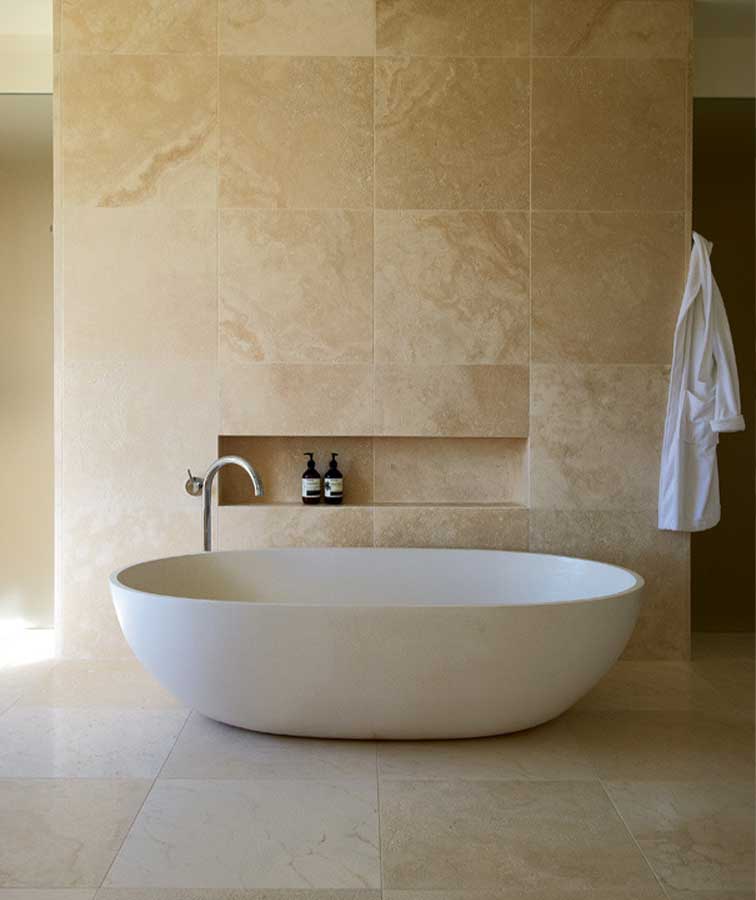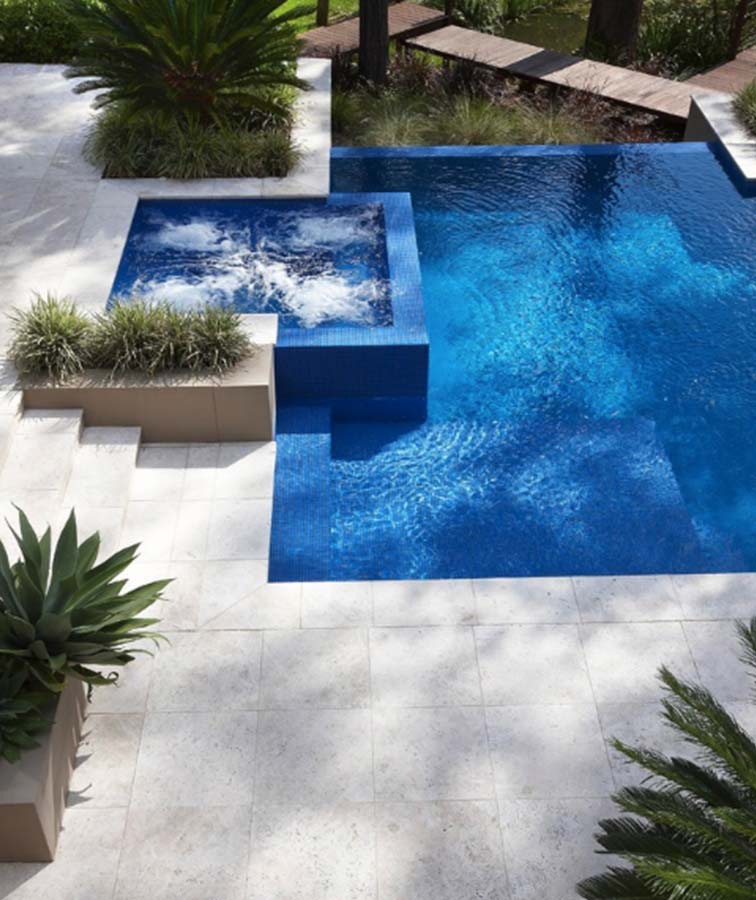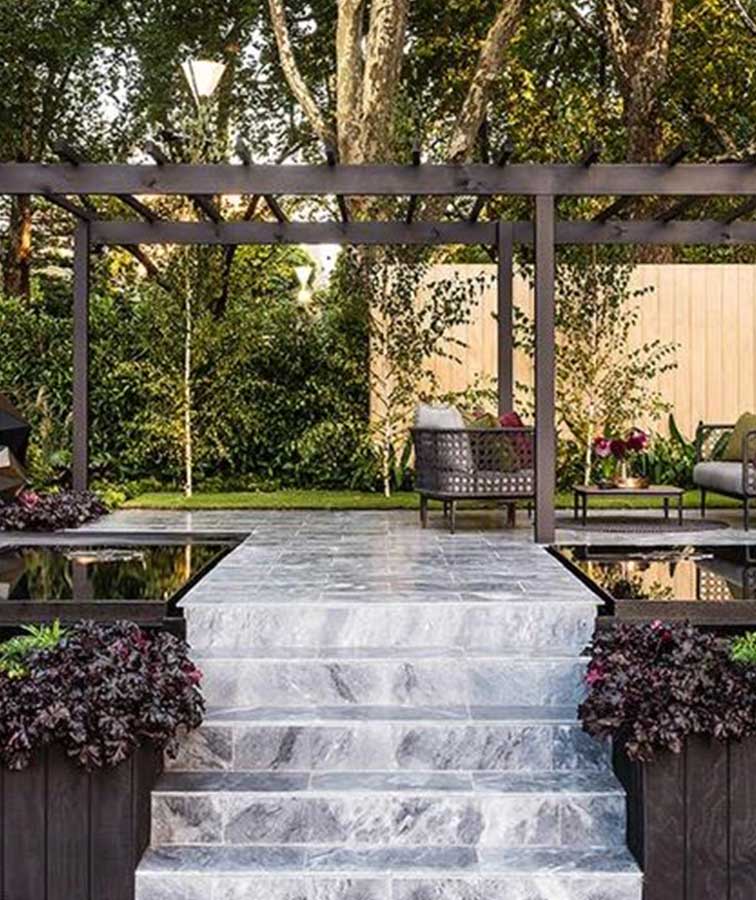Sealing and Protecting Travertine Tiles

Travertine Tiles are an elegant form of limestone tiles that are used to carpet the floor. Although this is durable like any other form of stone tiles, it is comparatively cheaper than granite or marble. Travertine Tiles are mainly used outdoors, where there is a chance of heavy wear and tear.
These tiles are ultra-strong and are capable of sustaining heavy load. Be it the paved footpath inside your building campus or the swimming pool’s sides, the best and the most economical flooring are Travertine Tiles. Travertine tiles are the most economical flooring with a comparatively lower maintenance cost and high durability.
These tiles will last for a lifetime if they are properly sealed. Although sealing is important in the initial stage, you do need to seal them from time to time to ensure a healthy life on your floor for some varieties of Travertine. To know about sealing and protecting your tiles from head to bottom, read through this article. We will try to help you with all your doubts about sealing Travertine.
Why do you need to seal your Travertine floored pathway?
In order to sustain the same level of glam and glaze, it is utmost necessary to seal your Travertine tiled pathway. Since it has been installed outdoors, the entire floor is more exposed to stains. Just imagine a bright red speck in the middle of the Travertine floored pathway. How bad it looks!!! So, it is always advised to seal your Travertine tiled pathway to protect its natural beauty. Moreover, sealed travertine tiles are economical in the long run, as they are not being exposed to the acid from acid rain.
When do you need to seal your travertine tile?
The primary sealing is to be done at the time of installation. To ensure better outdoor life of your Travertine, make sure that the edges, as well as the surfaces, are well sealed before you open them for use. Apart from this, you do also need to seal your travertine tiles at regular intervals like after every three or four years.
This time interval is purely based on how you use the tiles and the conditions it has been exposed to. An easy way to check is that you put a few drops of water on the tile and let it rest for five minutes. If the tile remains dark coloured even after fifteen minutes, then it is time to reseal your travertine tiles.
How to seal and protect the travertine tiles?

The first that you should keep in mind is that the tiles should be absolutely dry before you progress with sealing them. A moist tile will leave the sealing in a couple of weeks or months. So, after you ensure that the tiles are dry, apply a layer of coating with a sponge or brush or a towel.
Apply the seal evenly so that you do not end up with an uneven floor. Now, leave the seal stagnant for five or six minutes. Any seal that has not been absorbed should be wiped away with absorbent filter paper or microfibre based towel. If you want to apply more than one coat of sealing, then wait for thirty minutes; let the previous coat dry.
After you apply the final coat, wait for a couple of hours before you check the effectiveness of the sealing. Leave a few drops of water, and if it is not being absorbed, then you are successful in sealing the Travertine. Make sure that the tiles are kept dry for the next twenty-four hours and as far as possible, try not to use them for the rest of the day to ensure complete cure of the surface.
Advantages of sealing and protecting the travertine tiles:
There is a vast scope of advantages of sealing the Travertine, let us take a quick look at them.
- Weather Protection- Sealers protect the travertine tiles from all harsh weather conditions
- Weed protection- Oftentimes, if tiles are not sealed, weeds and grass start growing from the joints making it look inappropriate.
- Enhanced longevity- Proper sealing ensures a long and healthy life to your travertine tiles.
- Aesthetic appearance
- Resistant to an acidic substance
- Preventing damage due to water absorption
Conclusion
Travertine tiles have been used for flooring for half a decade, and till now, it is much popular, especially for outdoor paving. Be it outdoors or indoors; the element of beauty should be constant at all steps. And exactly at this point of time arises the necessity of sealing and protecting the tiles. Choose a good quality sealer for sealing your travertine tiles before you run out of time. Check out the huge range of travertine products here.
![]()
Have any questions about travertine pavers?
Give our friendly Stone Experts a call: (03) 9706 9767
After hours, please contact us here.



